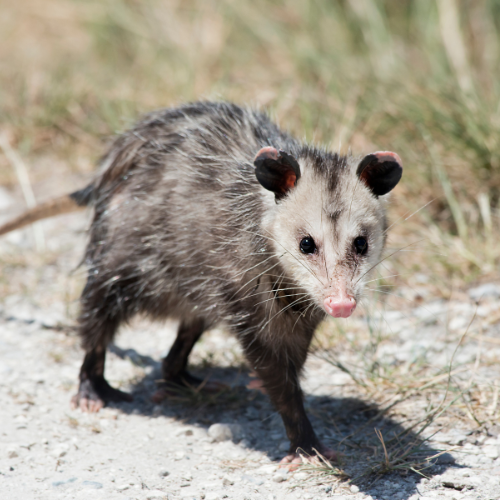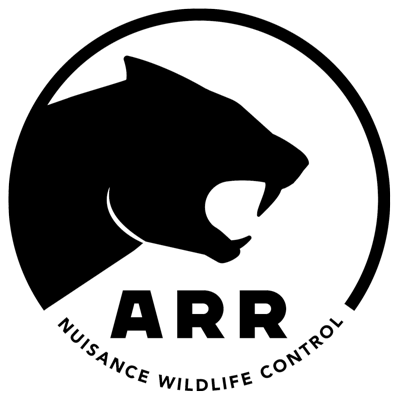In Florida, encounters with wildlife, including opossums, are becoming more frequent as urban development encroaches on their natural habitats. This trend has led to an increase in calls for wildlife control services, particularly during the breeding season in the spring and summer months.
These animals, while a natural part of our ecosystem, often find themselves at odds with human residents, leading to a range of issues that require professional intervention. The
Virginia opossum, the species commonly found in our area, is an adaptable creature known for its distinctive appearance. With grayish fur, a white face, and a long, hairless tail, these animals are solitary and primarily nocturnal. However, their adaptability means they often venture into human habitats in search of food, water, and shelter. This tendency is where the problems begin.
They are opportunistic feeders, which leads them to rummage through garbage, raid gardens, and even enter homes. Their search for food can cause significant property damage, from torn garbage bags to destroyed gardens and compromised pet food stores. Moreover, these animals can carry various diseases, including leptospirosis, tuberculosis, and parasites like fleas and ticks. The health risks extend not just to humans but also to household pets. While opossums are generally not aggressive, they can become defensive when cornered, potentially leading to injuries.
Many residents, upon encountering an opossum problem, might consider handling it themselves. However, DIY wildlife control is fraught with risks. Without the proper knowledge, skills, or tools, individuals may face safety risks from bites or scratches. Moreover, many home remedies or commercial products offer only temporary solutions if any at all. In Florida, wildlife is protected by various laws, and improper handling or removal of these animals can have legal consequences. Moreover, incorrect removal methods can exacerbate the problem, potentially leading to animals becoming trapped and causing further damage.
Despite the problems they present, opossums are fascinating creatures with unique traits. They contribute to natural pest control by eating snails, slugs, and small rodents. Remarkably, they have a natural immunity to snake venom, which allows them to prey on snakes like rattlesnakes and cottonmouths. One of their most well-known behaviors is "playing possum," where they mimic the appearance and smell of a dead animal to deter predators.
At ARR Nuisance Wildlife Control, we offer expert solutions to nuisance wildlife challenges. Our approach begins with a thorough inspection to assess the extent of the problem and identify potential entry points. We then employ humane and effective methods to safely capture and relocate the animals, adhering to all state regulations. Our services don't end there; we provide comprehensive exclusion services to prevent future intrusions, including sealing entry points and advising on property maintenance. Additionally, we offer cleanup and sanitation services to address any mess or contamination left behind by the animals.
Our commitment to humane, effective, and legal wildlife control sets us apart in the industry. We understand the importance of balancing the needs of both humans and wildlife, ensuring safe and harmonious coexistence. With ARR Nuisance Wildlife Control, residents and business owners in Central and Southwest Florida can rest assured that their opossum problems will be handled professionally, ethically, and effectively.
Frequently Asked Opossum Questions
Q1. Can They Really Hang by Their Tails?
A1. It's a common misconception that opossums use their tails to hang from trees for extended periods. In reality, while they do have prehensile tails, which means they can grasp and hold onto objects, they rarely hang by their tails. The tails are primarily used for balance and support while climbing. Young opossums are more likely to hang briefly from their tails, but as they grow and gain weight, this behavior is less common.
Q2. Do They Play Dead as a Conscious Choice?
A2. The famous behavior of "playing dead" or "playing possum" is not a conscious choice but an involuntary reaction to extreme fear. When an opossum feels threatened and cannot escape, it may fall into a catatonic state, appearing dead. This state can last for minutes to hours, and it's accompanied by a stiff body, open mouth, and the emission of a foul odor that mimics the smell of a decaying animal. This reaction is a defense mechanism intended to deter predators that prefer live prey.
Q3: Can They Transmit Diseases to Humans and Pets?
A3. While opossums can carry certain diseases, the risk of transmission to humans and pets is generally low. They are known to carry diseases like leptospirosis, tuberculosis, and can host parasites such as fleas and ticks. However, opossums are less likely than many other mammals to carry rabies, as their body temperature is typically lower than that of most mammals, creating an inhospitable environment for the rabies virus. It's important to remember that direct contact with opossums (like any wild animal) should be avoided to minimize any risk of disease transmission. Also, keeping pets vaccinated and maintaining good hygiene practices, such as regular hand washing and keeping pets away from areas frequented by wildlife, can further reduce the risk of disease transmission.
All Rights Reserved | ARR Nuisance Wildlife Control

